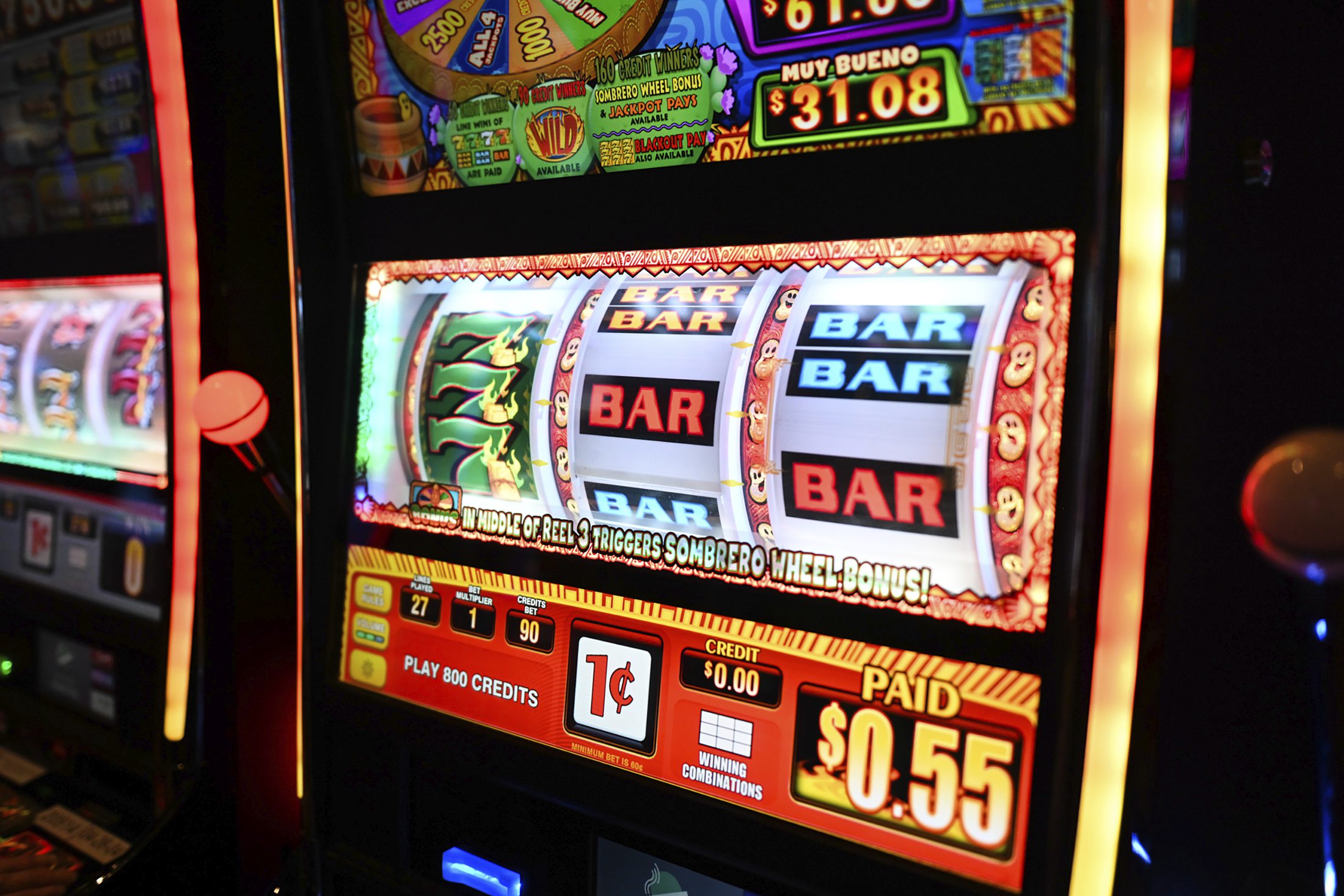
Story by RICH CHOLODOFSKY and HALEY DAUGHERTY
Photos by KRISTINA SERAFINI
TribLive

Oct. 26, 2025
Before casino floors across Pennsylvania were filled with the clatter of slot machines and the flashing lights of jackpots, supporters of legalized gambling promised the expected revenue would be a sure bet to reduce property taxes.
Today, state gaming officials and creators of Act 1, known as the Taxpayer Relief Act of 2006, say that wager has paid off. School districts — the primary beneficiaries of property taxes in the state — received more than $6.2 billion from casino revenue in the last decade to offer relief for homeowners.
Still, a TribLive investigation found that the formula used to distribute that gambling revenue relies on economic data that is more than two decades old. And although the money allocated for property tax relief is expected to grow to more than $1 billion this year, it will be shared by just more than half of the state’s eligible home and farm owners.
“Every year you might get relief, but many don’t know they are getting it,” said Eric Montarti, research director at the Allegheny Institute for Public Policy.
That tax relief is applied through the state’s Homestead and Farmland Exclusion program, which allows municipalities, county governments and school districts to grant property tax relief up to 50% of the assessed value of a primary home or working farm.
Revenue earmarked for property tax relief doled to 500 school districts in Pennsylvania has grown substantially over the past three years along with a booming casino business, jumping from nearly $622 million in the 2022-23 school year to $931 million in the fiscal year that ended this summer.
The relief is deducted from school tax bills.
The revenue for property tax relief is generated solely from slot machine proceeds online and in the state’s 17 casinos. That revenue is expected to top $1 billion for the first time in the upcoming year, according to the state Department of Education, which oversees policy and funding of the state’s schools.

That’s cash that property owners don’t directly receive. Instead, the funds are deducted from their school property tax bill. The property tax savings varies based on a home’s value and the school district.
The method used to dole out these funds is based on specific economic factors in each school district, including enrollment, personal income of residents, assessed values of homes and total tax collections. It’s data that dates to 2002 and never has been updated, according to Department of Education officials.
As an example, in 2002, Hempfield Area School District had 7,200 students, according to the Department of Education. Enrollment dropped almost 30% — to about 5,100 students — in the 2024 school year.
Montarti said that without updated data, the distribution of property tax relief may not reflect current economic conditions.
“There could be school districts that should be getting more relief and might not be, and districts that should be getting less but are not,” he said.
According to statistics from the Department of Education, about 2.6 million property owners received property tax relief during the 2024-25 school year.
Todd Neptune has owned his house and farm in Hempfield for about 30 years. He said he didn’t know he receives a discount from casino gambling on his annual school tax bill, which will be about $1,100 this year.
“I must have applied for it, but I don’t remember. I don’t know that I ever looked that closely at my bill,” he said.
Neptune has been an outspoken critic of the system of taxing property owners to fund schools. He said the money he saves as a result of casino revenue is helpful, but ultimately more could be given directly to taxpayers.
He is among the more than 13,000 in the township who receive property tax relief through the Homestead and Farmstead Exclusion. Each of Pennsylvania’s counties are responsible for administering the program and processing applications for property tax relief.
Hempfield tax collector Faye Rossati said tax bills specifically identify whether a property is designated for the relief and how much money it receives each year.

Tax revenue collected last year from all forms of casino-style gambling — including table games and sports betting — in Pennsylvania topped $2.8 billion. In addition to property tax relief, those funds were earmarked for grants paid to communities that host casinos, for economic development projects throughout Pennsylvania, assistance to agriculture programs, subsidies to the state’s horse racing industry, gambling addiction services and general government operations.
According to figures from the Department of Education, the highest amount of anticipated property tax relief in fiscal year 2025-26 is in the Allentown School District in Lehigh County. Property owners there will see an average $1,032 reduction in their tax bill as a result of slot machine revenue.
In Western Pennsylvania, property owners in the Washington School District are expected to receive the most tax relief, receiving average discounts of $990.
Meanwhile, property owners in some school districts will see substantially smaller amounts of tax relief. Homeowners in the Mars Area School District in Butler County, for example, will see an average reduction of just $102 this year.
Residents in a handful of districts in Westmoreland County receive the least amount of relief: Ligonier Valley School District averages $130 this year, Norwin $166, Hempfield $168 and Greater Latrobe $172.
Kevin Smith works as a local tax collector in the Leechburg Area School District, where property owners last year received an average of $398 in tax relief. His school tax bill is about 15% less, he said, and he saved $462 this past year through tax relief.
“I believe it does help people, particularly those who are lower income,” Smith said. “It can split their taxes in half … (the relief) could be a weekly salary that they’re saving.”
Smith purchased his West Leechburg home in 2016.
“I don’t think people realize how much it saves them. I think the state could increase the relief a little to help with the tax bills even more,” Smith said. “My concern is that I know there’s people out there who could be getting this and they don’t know about it.”
The Plum Borough School District received about $2.9 million last year in tax relief.
Financial Manager Ryan Manzer said the district sends annual reminders to property owners about the program.
“If the state were able to refresh the data and (Plum Borough) has grown more than other districts in the last 20 years, then we’d certainly welcome that refresh to the data,” Manzer said. “But we’re happy with the consistency without the refresh.”
Plum has seen its average property owner tax relief increase from $210 to $373 in the past 10 years. The average homeowner in the district pays an annual tax bill of about $2,810.

Elizabeth Stelle, vice president of the Commonwealth Foundation, a Harrisburg nonprofit that lobbies for equitable school funding and property tax reform, criticized how the casino revenue is distributed to school districts. She argued that tax relief distributions don’t account for how districts have changed over the years.
She said the growing property tax relief generated by gambling is still not enough to compensate for rising tax burdens that result from insufficient state funding of schools.
“We see this tax relief as helpful to some extent, but it didn’t really address the underlying source of the issue that school districts’ revenues have gone up 48.4% since 2013, mostly through property taxes,” Stelle said. “I don’t think it solves the underlying issue of increases in education spending. It could be part of the puzzle, but even if they redo the formula we could be in this situation in another 20 years.”
At least 20 school districts of 28 in Westmoreland County and the Alle-Kiski Valley raised taxes this year, according to TribLive research.
George Dunbar, a member of Pennsylvania’s Gaming Control Board and a former state House representative from Penn Township, said the promise of property tax relief has been honored.
“When this became law, there was a big push that it could eliminate property taxes and this seemed like a vehicle to do it. The problem is people don’t see it and they don’t realize it’s there, but it — the Homestead Exclusion — is the very first thing on their tax bill,” Dunbar said. “I can tell you when I was in the House, people would come into my office and complain they never got money off the casinos. I’d tell them, ‘you did.’ ”
State Sen. Jay Costa, D-Forest Hills, said the Taxpayer Relief Act is serving its purpose.
Despite the formula for allocation not being updated since 2006, Costa said people should look elsewhere when considering why people may be struggling with property tax bills.
“The issue is not with the formula divvying out the resources,” Costa said. “We’re not properly funding education.”

He suggested that state lawmakers may need to review the outdated formula that determines how property tax relief is distributed.
“It’s the matter of some districts are going to do better, and others will do worse, if the formula is changed or updated. It’s worth looking at, but I can’t speak to whether or not it’s appropriate or inappropriate to use. In my opinion, it’s not a problem,” Costa said.
Pennsylvania voters in 2017 passed a referendum that allows state lawmakers to expand the program that could permit exemptions to reach up to 100%, which could essentially eliminate property taxes.
No legislative action has followed.
A bipartisan bill introduced in the Republican-controlled state Senate this year proposed a constitutional amendment to eliminate property taxes for schools and fund them through sales and income taxes. It remains in committee.
State Rep. Eric Nelson, R-Hempfield, said any review of how tax relief is distributed warrants caution.
“I think there could be an opportunity to look at these numbers, but the intent of the money is to go to the poorest districts and those with the highest property taxes,” he said. “Revising those numbers could be a detriment to school districts in southwestern Pennsylvania.”

Gambling opponents continue to question whether tax benefits of legalized gambling outweigh the societal risks.
Josh Ercole, executive director of the Council on Compulsive Gambling, criticized what he called dangerous rhetoric that gambling promotes the “greater good.”
“The population that is supposed to benefit from these tax programs are often the ones funding them the most,” Ercole said. “Taxation tends to fall heaviest on people who can’t necessarily afford that outcome.”
Ercole said there are benefits to having legalized and regulated gaming, making the point that if it wasn’t legal here, people would just travel out of state to do it.
He said it’s a plus to have that money circulated back into Pennsylvania when it could be heading to other states and acknowledged that legislators found a way for some of the revenue to help state residents.
Pennsylvania collected $2.8 billion in tax revenue from casino and online gambling during the 2024-25 fiscal year.
More than one-third of those funds — more than $1 billion — will be allocated to property tax relief in the coming year through the state’s Homestead and Farmland Exclusion programs.
A homeowner’s primary residence is eligible for school property tax relief, and the homeowner must apply to their county’s tax or assessment offices to enroll. Once enrolled, the current owner of a property will receive tax relief each year.
About 2.6 million property owners in Pennsylvania are expected to receive property tax relief on their 2025-26 school tax bills.
Yet a TribLive investigation found that about only half of eligible properties take advantage of the program.
In Westmoreland County, 57% of eligible homes are enrolled in the Homestead and Farmland Exclusion programs, according to Chief Assessor Camden Porterfield.
Officials in Washington County said about 65% of eligible property owners receive the tax relief. About 52% of property owners in Allegheny County and 44% in Butler County receive tax relief from casino revenue.
Homestead and Farmland Exclusions expire when properties change ownership.
Porterfield said Westmoreland County notifies property owners who are not already enrolled in the tax relief program about how they can apply each year. Washington County Chief Assessor Raffeale Casale said notices are sent out annually to new owners when a property has changed hands.

Maria Montaño, manager of public affairs in Allegheny County, said no reminders are sent out to property owners.
School districts receive annual allocations from taxes collected on revenues generated from slot machine play at Pennsylvania’s 17 casinos and via online gaming sites.
Data from 2002 — such as total tax collections in each school district, incomes of local residents, home values and school enrollments — are used to create a formula by which tax relief funds collected from slot machine levies are distributed to local school districts, according to the Pennsylvania Department of Education.
School districts then calculate the amount of property tax relief that is awarded.
Savings are based on a flat dollar figure that is subtracted from a property’s assessed value. It varies in each school district based on the funds available for tax relief and the number of participants who receive the Homestead and Farmstead Exclusion.
Rich Cholodofsky and Haley Daugherty are TribLive staff writers and can be reached at rcholodofsky@triblive.com and hdaugherty@triblive.com
Kristina Serafini is a Tribune-Review photographer. You can contact Kristina via email at kserafini@triblive.com or via Twitter @kristinaserafini
